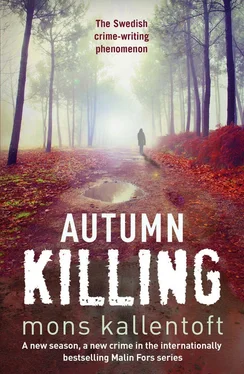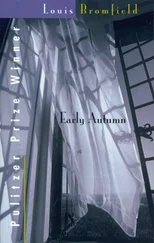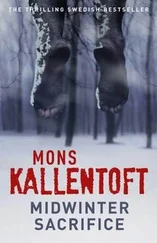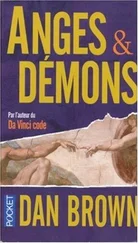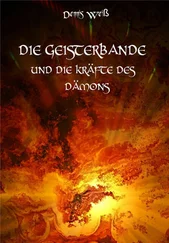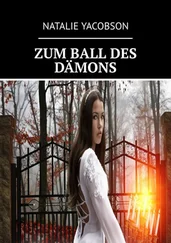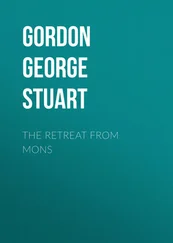Mons Kallentoft - Autumn Killing
Здесь есть возможность читать онлайн «Mons Kallentoft - Autumn Killing» весь текст электронной книги совершенно бесплатно (целиком полную версию без сокращений). В некоторых случаях можно слушать аудио, скачать через торрент в формате fb2 и присутствует краткое содержание. Жанр: Триллер, на русском языке. Описание произведения, (предисловие) а так же отзывы посетителей доступны на портале библиотеки ЛибКат.
- Название:Autumn Killing
- Автор:
- Жанр:
- Год:неизвестен
- ISBN:нет данных
- Рейтинг книги:3 / 5. Голосов: 1
-
Избранное:Добавить в избранное
- Отзывы:
-
Ваша оценка:
- 60
- 1
- 2
- 3
- 4
- 5
Autumn Killing: краткое содержание, описание и аннотация
Предлагаем к чтению аннотацию, описание, краткое содержание или предисловие (зависит от того, что написал сам автор книги «Autumn Killing»). Если вы не нашли необходимую информацию о книге — напишите в комментариях, мы постараемся отыскать её.
Autumn Killing — читать онлайн бесплатно полную книгу (весь текст) целиком
Ниже представлен текст книги, разбитый по страницам. Система сохранения места последней прочитанной страницы, позволяет с удобством читать онлайн бесплатно книгу «Autumn Killing», без необходимости каждый раз заново искать на чём Вы остановились. Поставьте закладку, и сможете в любой момент перейти на страницу, на которой закончили чтение.
Интервал:
Закладка:
I want my grandchildren here with me, but how can I approach her, Bettina? His wife, Christina, she’s never liked me, nor I her.
And really, what would they want me for?
The truth, Axel Fagelsjo thinks, is for people who don’t know any better. Action is for me.
You’re a widow now.
Your two children fatherless.
Johan Jakobsson looks at the woman sitting in front of him on the sofa in the large living room of the Villa Italia, hunched up and tear-streaked, yet still radiating a sort of faith in the future. She must be financially secure, and Johan has seen this before in women with children when he arrives to break news of their husband’s death, the way they immediately seem to focus all their energy forward, onto the children, and the work of limiting the damage to them.
Johan leans back on the sofa.
Christina Fagelsjo looks past him, towards Waldemar Ekenberg, who is sitting on a stool by the grand piano, rubbing the bruise on his cheek.
Christina has just explained that she decided to spend the night at her parents with the children after drinking wine at dinner. That she often ate dinner with the children at her parents without Fredrik, ‘they’ve never got on very well, Frederik and my parents’, and that her parents can confirm that she was there.
‘You didn’t call home?’ Waldemar asks.
‘No.’
‘And he wasn’t here when you got home?’ Johan asks, and he is struck by the idea that Christina could have murdered her husband to get a share of the recent inheritance before it was spent trying to buy back Skogsa.
A long shot, he thinks. The woman in front of him is no murderer. And the inheritance must have gone mainly to Axel. But she does appear to be right-handed. Along with practically everyone else.
‘I assumed he must be at the bank.’
‘Did he have any enemies?’ Waldemar asks, and it strikes Johan that it’s just the right moment for that question, phrased in that way, and reluctantly he has to admit that he and Waldemar work well together as police officers. He is convinced that Christina is telling the truth when she replies.
‘Not that I know of.’
‘His father? His sister?’
‘You mean because of the debacle?’
Christina shrugs her shoulders.
Waldemar Ekenberg strikes one of the keys of the piano gently. Light in Christina Fagelsjo’s eyes.
‘I know we’ve asked before,’ Johan says. ‘But do you know why he tried to escape from us? Could it have. .’
‘We talked about it the day he was released. He got scared, panicked. Anyone might have done in those circumstances.’
‘Do you think it occurred to him that driving under the influence of alcohol is illegal as well as dangerous?’
‘Sometimes he thought he was above that sort of thing. Sometimes rules were meant for other people.’
‘What was your marriage like?’ Johan goes on, and Christina answers without thinking.
‘It was a good marriage. Fredrik was a generous man. The Fagelsjo family are good at love.’
And at the moment Christina says the word love, two small children run into the room, a little girl and an even younger boy. The children rush over to their mother, talking at the same time: ‘Mummy, Mummy, what’s happened? Mummy, tell us.’
‘Mum? Is that you? It’s a bad line.’
Tove.
It’s not yet half past two and it’s already starting to get dark over on the horizon beyond the jagged, shredded Ostgota plain. Malin is sitting in the Volvo with Zeke, on their way to Katarina Fagelsjo’s address.
She wants Tove to say she’s coming round this evening, that she’ll stay the night in the flat in the city and not out at Janne’s.
They drive past Ikea, the car park full at this time of day, and at the petrol station near Skaggetorp, people are filling their shiny, well-kept cars. She looks at the spot where she parked when she went to buy clothes and seems to see two men gesturing to each other beside a car.
Malin blinks.
When she opens her eyes again the men are gone.
Down by the river and the Cloetta Center, the new high-rise block is going up, the tower, a miniature skyscraper, a pointless piece of showy architecture so that another of the city’s vain property developers can stamp his name on Linkoping’s history.
‘Mum? Is that you? I can’t really hear you.’
‘I’m here,’ Malin says. ‘Are you coming home this evening? We can do egg sandwiches.’
‘Maybe tomorrow?’
And mother and daughter talk, about how they are, what they’ve been doing, what they’re going to do.
Malin hears her own voice, but it’s as if it doesn’t really exist. As if Tove’s voice doesn’t exist. And this absence of voices forms a loneliness, which forms itself into an inadequacy, which forms itself into grief.
The car pulls up outside Katarina Fagelsjo’s modernist villa down by the river, fallen apples are still lying under the trees, and only now does Malin see the decay, that the house needs plastering and that the entire garden could do with being cleared out and maybe replanted.
Malin and Tove hang up.
The windscreen wipers are working frantically.
Their movement makes the shape of a heart, Malin thinks. Painted hearts, rubbing suncream onto a woman’s skin.
Signs of love that were never interpreted.
And she knows which question to ask Katarina Fagelsjo.
52
As if she had been waiting for this to happen.
Katarina is sitting in front of Malin and Zeke on the sofa from Svenskt Tenn. Her face betrays no dismay, no grief, no despair.
She has just had news of a death.
Your brother has been murdered.
And Katarina seems to shrug her shoulders, brush herself off, and move on. He was still your brother, Malin thinks, in spite of his shortcomings.
Malin looks at the Anna Ancher painting on the far wall, the woman at a window facing away from the viewer. She reminds me of your father, Katarina, by the window facing the Horticultural Society Park, as if they’re both trying to hide their faces at all costs, to avoid having to reveal what they feel.
Is that what you’re supposed to do? Pretend the world outside, any feelings, don’t exist? Or is there something else you’re hiding?
She hears Zeke asking questions, and Katarina answering.
‘Yes, Father was here. He went home. I went to bed. No one can verify that. Is that necessary?
‘I didn’t kill my own brother, if that’s what you’re thinking. We’re not behind either of the murders. Matter closed. Enemies? Fredrik was harmless. He didn’t have any enemies. Yes, the day my father dies I’ll inherit almost everything now, but I’ve had everything I need for a long time.’
The irony sharp as a razor blade as Katarina says these last words.
Zeke runs out of questions.
Katarina folds her hands in her lap, letting her fingers rest on each other on the blue silk of her knee-length skirt, and Malin thinks that she has that gentle restlessness you only see in women who have no children, a mournful longing that finds expression in an edginess, a chronic nervousness, and sudden attempts at warmth.
Katarina frowns, and Malin thinks that a single feeling can define a person’s life if it’s sufficiently strong, make that person want to live in that feeling, even though it will never return.
Another painting on another wall. A woman on her own in blue, facing a misted window, Impressionistic. She’s longing for something, Malin thinks.
‘You and Jerry Petersson,’ Malin says. ‘You went out together, didn’t you?’
And Malin can hear how hard, inadequate and clumsy her words sound, and she sees Katarina’s face contort before she says: ‘Surely now’s not a time for fantasies, is it, Inspector?’
Читать дальшеИнтервал:
Закладка:
Похожие книги на «Autumn Killing»
Представляем Вашему вниманию похожие книги на «Autumn Killing» списком для выбора. Мы отобрали схожую по названию и смыслу литературу в надежде предоставить читателям больше вариантов отыскать новые, интересные, ещё непрочитанные произведения.
Обсуждение, отзывы о книге «Autumn Killing» и просто собственные мнения читателей. Оставьте ваши комментарии, напишите, что Вы думаете о произведении, его смысле или главных героях. Укажите что конкретно понравилось, а что нет, и почему Вы так считаете.
